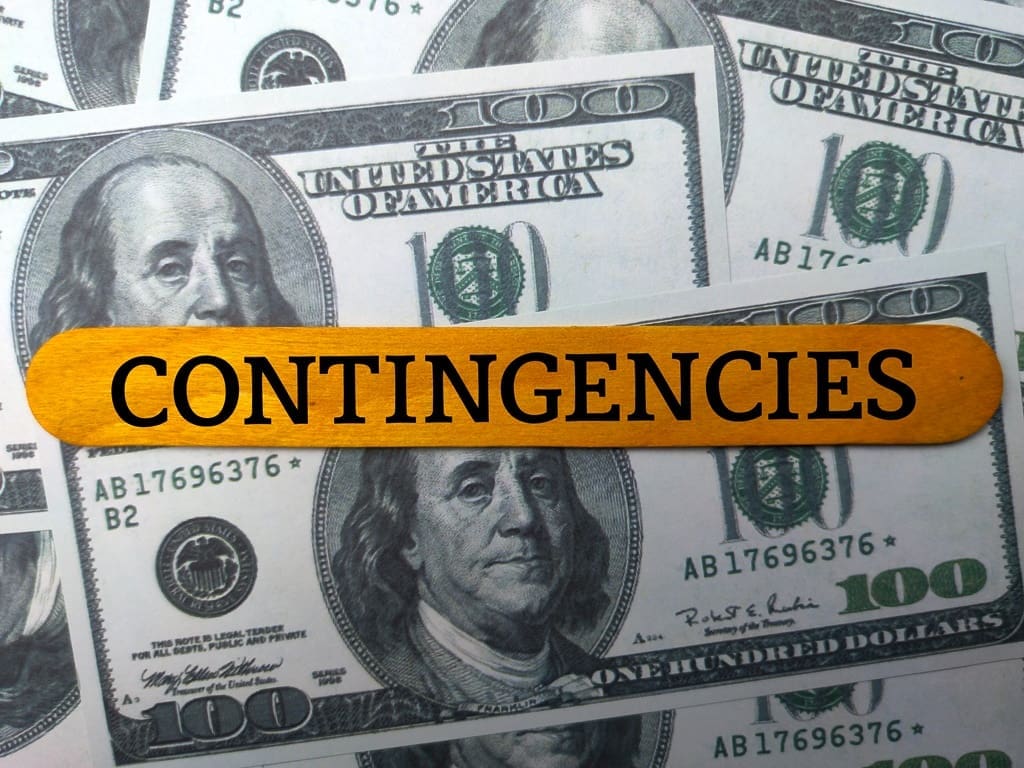When you’re ready to make an offer on a home, your real estate agent will help you write up a purchase agreement. This document is a legally binding contract between you and the seller, and it outlines the terms of your sale. Most purchase agreements include contingencies, which are stipulations that protect both buyers and sellers in case something goes wrong with the sale. Some common purchase agreement contingencies include inspections, financing, and appraisals. In this post, we’ll take a closer look at each of these contingencies and how they can affect your home purchase.
What is a purchase agreement contingency?
A purchase agreement contingency is an important clause contained in a real estate contract that provides a mechanism to address any issues that need to be resolved before the deal can proceed. This can include anything from repairs or inspections being completed to securing financing or a clear title of the property. Both the buyer and seller must agree upon any contingencies before they will be included in the purchase agreement. Both parties need to designate all agreed-upon contingencies upfront, before the completion of the sale, as this allows for a smoother closing process and ensures that each party is satisfied with their end of the bargain.
Common purchase agreement contingencies

While many of the common purchase agreement contingencies are largely similar across most transactions, each situation is unique, and the buyer should look for certain items that should be included in their agreement. Some of the more common contingencies include financing stipulations, home inspections, insurance requirements, professional certifications, appraisals, and environmental assessments. Having these conditions laid out in the contract can provide additional protections to both parties while allowing the buyer to investigate any issues before keeping or closing on a property. Making sure all necessary documentation is present when signing an agreement can help guarantee a secure purchase that is beneficial to all involved.
How to remove a purchase agreement contingency
When it comes time to remove a purchase agreement contingency, there are a few steps that should be taken to ensure the process goes smoothly. First, you’ll need to review the contingency in question and determine its exact details. If necessary, definitions of any ambiguous terms can be obtained from your real estate agent or attorney. Next, you will want to make sure that all involved parties are aware of the prerequisite conditions being satisfied; this is so everyone can move forward with confidence in removing the contingency. During this stage, you may also need to prepare documentation such as inspection reports and other proof of satisfaction. Finally, make sure all relevant documents have been signed off on by whoever is designated as the responsible party. Once these steps are completed the contingency can be removed with the assurance that all procedures were properly followed.
When it may be beneficial to keep a contingency in place

A purchase agreement contingency helps ensure that contracts are honored promptly, protecting both the buyer and seller. Homebuyers in particular can benefit from having a purchase agreement contingency in place, as it gives the buyer some assurance that they won’t get stuck with a house they don’t want if their financing or home inspection should go awry. Additionally, individuals who are purchasing a new business may find it helpful to have contingencies, such as waiting for approval of any associated loan before the exchange of funds takes place – this type of contingency serves to protect both the seller and buyer by making sure all expectations are properly met. In these cases, having contingencies allows for a seamless transaction when all involved parties meet their obligations in an agreed-upon timeframe.
Tips for negotiating contingencies with the seller
When negotiating contingencies with a seller, it is important to understand the terms of the agreement and set expectations in advance. Open communication between buyer and seller is key, as it helps establish trust and a clear understanding of each party’s interests. Using an experienced real estate agent will prove invaluable during the negotiation process. Buyer-seller collaboration for determining solutions to any potential problems that arise can help create a smoother transition for everyone involved.
In conclusion, it is clear to see that purchase agreement contingencies are an important and beneficial aspect of the home-buying process. They provide both buyers and sellers with invaluable protection should something go awry during the transaction. To ensure all parties involved in a purchase agreement are satisfied, it is important to understand what contingencies are, how they work, and how they can be used in negotiations. As demonstrated here, understanding these contingencies can help protect both buyers and sellers alike. By utilizing the key tips outlined throughout this post, each party will be more equipped to make wise decisions when negotiating contingencies during the home-buying process. Ultimately, purchase agreement contingencies offer valuable protection for those involved in a real estate transaction and should be given due consideration.
#RealEstate #Contingencies #HomeBuying

Richard has extensive experience in all aspects of buying and selling residential property. He has sold more than 400 homes and well over $100 million in residential real estate. There’s no need to guess. Get expert advice that will allow you to buy and sell with confidence and ease.
For neighborhood guides about Decatur and other intown neighborhoods, click here.
To learn more about the value of your home, please complete the form here.
If you are looking to purchase a home, please reach out here. We would love to help you have a wonderful buying experience.
You can always reach us through the Contact Us page here as well.
